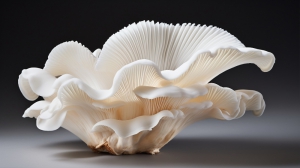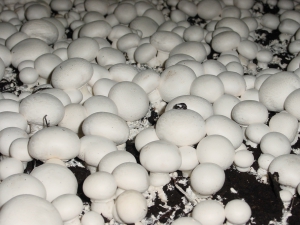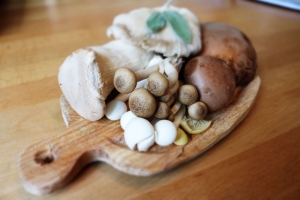The humble mushroom is quietly taking center stage in a global shift toward sustainable living, healthy eating, and circular innovation. Once considered a niche ingredient or a simple forest delicacy, fungi are now at the heart of scientific breakthroughs, environmental solutions, and a booming wellness economy.
From food to function: mushrooms go mainstream
In kitchens and cultivation facilities across the world, mushrooms have become more than a culinary delight, they’re a cornerstone of functional nutrition. The demand for lion’s mane, cordyceps, and reishi continues to grow as consumers seek natural ways to support focus, energy, and immunity. Analysts estimate the global functional mushroom market could surpass $20 billion within the decade, driven by both consumer wellness trends and research into compounds like beta-glucans and hericenones.
For mushroom growers, this trend opens new opportunities beyond traditional button or oyster cultivation. Specialty fungi command higher margins, require less land and water, and appeal to a rapidly diversifying customer base—from wellness brands to supplement formulators.
Mycelium: the root of innovation
Outside the kitchen, mycelium, the root-like network that forms the body of a fungus, is emerging as one of the most exciting biomaterials on Earth. Startups and researchers are developing mycelium-based packaging, textiles, and construction materials that rival plastics, leather, and even concrete. Unlike synthetic materials, mycelium grows naturally from agricultural waste and fully biodegrades, offering a true circular alternative.
Recent progress in Europe and North America shows mycelium composites being adopted for protective packaging, furniture, and even soundproofing panels. For the mushroom industry, these ventures create new synergies: growers can repurpose waste substrates into valuable bioproducts, closing the sustainability loop.
The Future: mushrooms as climate partners
As agriculture faces increasing pressure from climate change, fungi could play a vital role in regenerating soil health and reducing carbon emissions. Mycorrhizal fungi, those that form symbiotic relationships with plant roots—enhance soil structure, boost nutrient uptake, and lock away carbon underground. Forward-thinking farmers are exploring mushroom-integrated systems where fungi coexist with crops to improve yields and biodiversity.
Meanwhile, food innovators are experimenting with mycoprotein-based meat alternatives that deliver both nutrition and sustainability, requiring a fraction of the water and land of traditional livestock.
The bottom line
From the lab to the forest, and from the farm to the factory, fungi are rewriting what’s possible in food, health, and materials science. For mushroom farmers and industry professionals, the message is clear: we are not just growing mushrooms, we are cultivating the future.
Published by Mushroom Matter: connecting the global mushroom community through insight, innovation, and inspiration
Mushrooms magnify memory by boosting nerve growth
image: Wikimedia Commons
Researchers from The University of Queensland have discovered the active compound from an edible mushroom that boosts nerve growth and enhances memory.
Professor Frederic Meunier from the Queensland Brain Institute said the team had identified new active compounds from the mushroom, Hericium erinaceus.
“Extracts from these so-called ‘lion’s mane’ mushrooms have been used in traditional medicine in Asian countries for centuries, but we wanted to scientifically determine their potential effect on brain cells,” Professor Meunier said.
“Pre-clinical testing found the lion’s mane mushroom had a significant impact on the growth of brain cells and improving memory.
“Laboratory tests measured the neurotrophic effects of compounds isolated from Hericium erinaceus on cultured brain cells, and surprisingly we found that the active compounds promote neuron projections, extending and connecting to other neurons.
“Using super-resolution microscopy, we found the mushroom extract and its active components largely increase the size of growth cones, which are particularly important for brain cells to sense their environment and establish new connections with other neurons in the brain.”
Co-author, UQ’s Dr Ramon Martinez-Marmol said the discovery had applications that could treat and protect against neurodegenerative cognitive disorders such as Alzheimer’s disease.
“Our idea was to identify bioactive compounds from natural sources that could reach the brain and regulate the growth of neurons, resulting in improved memory formation,” Dr Martinez-Marmol said.
Dr Dae Hee Lee from CNGBio Co, which has supported and collaborated on the research project, said the properties of lion’s mane mushrooms had been used to treat ailments and maintain health in traditional Chinese medicine since antiquity.
“This important research is unravelling the molecular mechanism of lion’s mane mushroom compounds and their effects on brain function, particularly memory,” Dr Lee said.
The study was published in the Journal of Neurochemistry.
UQ acknowledges the collaborative efforts of researchers from the Republic of Korea’s Gachon University and Chungbuk National University.
Source: The university of Queensland
Credits: Queensland Brain Institute
Shiitake happens: Mushrooms to play key role in immunity nutrition and health, concludes report
Concerns over immune health and the pandemic has thrust the humble mushroom into the spotlight as experts hail the fungi’s ability to interact with gut microbes that influence healthy immune and inflammatory responses.
Please read the full article here.
Source: Nutra Ingredients
Mushroom varieties offer different health benefits
While it’s easy to decipher between shapes and colors, it’s not as easy to see the nutritional differences between mushrooms. Mushrooms are a nutrient powerhouse with each type offering beneficial nutrients such as vitamin D, selenium and B vitamins.
Health Benefits of Mushroom Varieties
This March, during National Nutrition Month,“Put Your Best Fork Forward” and dive deeper into the leading health benefits[1] behind four common mushroom varieties.
Low-Calorie
Opt for white buttons: Boasting just 18.5 calories per serving[2], white button mushrooms contain the lowest calories of all mushroom varieties. Additionally, white buttons provide 15 percent of the daily recommended intake of the vitamin B3, niacin. Niacin may promote healthy skin and digestive health.
Bone Health
Say hello to shiitakes: One serving of shiitake mushrooms is an excellent source of copper, offering 40 percent of the recommended daily intake. Copper helps keep bones and nerves healthy.
Immunity
Choose crimini: One serving of crimini mushrooms is an excellent source of selenium, containing 31 percent of the recommended daily intake. Selenium may help the immune system function properly.
Vitamin D
Make room for maitake: One serving of maitake mushrooms contains a whopping 236 percent of the daily recommended intake of vitamin D. Vitamin D may help build and maintain strong bones by helping the body absorb calcium. Additionally, it may support cell growth, neuromuscular and immune function, and help reduce inflammation.
For the full article, click here
Source: Mushroom Council
























